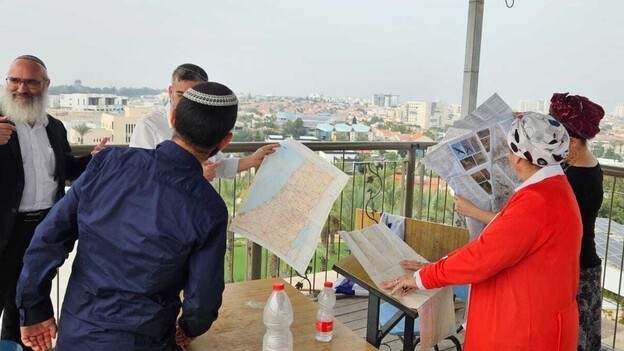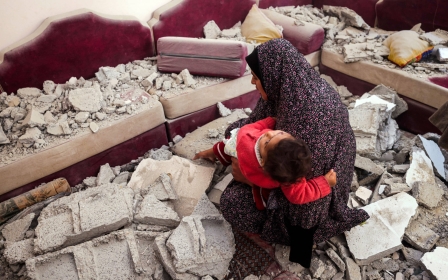War on Gaza: Israeli MPs hold meeting on building settlements in Gaza

Members of the Israeli Knesset met on 4 January to discuss what the future of Gaza would look like following the war, and called for the recruitment of settlers who would be willing to move there, according to Israeli media.
Heads of councils, rabbis and public figures also attended the meeting.
According to Israeli News12, the Nachala movement, which is responsible for organising settlers to form settlements in new areas, will be meeting on 28 January in their Jerusalem headquarters to discuss the matters further.
The meeting has been organised “in the face of alarming signs of weakness regarding the next phase of fighting and a call for settlements in the Gaza Strip”.
The group stated that there is an increased demand for new settlements in the Gaza Strip, and “thousands” have asked to be part of a new settlement there.
In the meeting on 28 January, maps and stages of settlements proposed to be built in Gaza are expected to be presented.
The Nachala movement also added that in previous conferences, members of Knesset have also been present, who supported the process. This includes people such as Tali Gottlieb, Ariel Kellner and Limor Son Har Melech.
The chairman of the Nachala movement Daniela Weiss said: “After the terrible massacre on October 7, every day we hear more ministers and members of Knesset who understand that there is only one option to end the fighting with the enemy in Gaza - and that is to return the land to the people of Israel and to settle Gaza with Jews.”
Weiss also told Israeli media that they should "have goals besides the war" and "besides destroying Hamas and recovering the hostages", adding that they need to make "all of the Gaza Strip a place for new Israeli communities".
"Approximately two million Arabs are left in Gaza, and they are not going to stay. They will leave for other countries. They have lost their reason to stay there," she added.
Weiss stated that she has planned two meetings with leaders from 15 different organisations in order to plan for the resettlement of Gaza.
"Israel should create a problem for the Arabs, to the point where Egypt, Jordan, and Turkey are forced to absorb them as refugees as they did from Syria. We should not offer them anything to leave. I am not focused on what is best for them, but on what is best for Israel," she said.
'Resettlement of Gaza'
Last week, far-right ministers called for the “Resettlement of Gaza”, reports from Israeli media stated.
National Security Minister Itamar Ben Gvir and Finance Minister Bezalel Smotrich said that they “encouraged” the migration of Palestinians from Gaza, saying it was the solution to the war.
Ben Gvir added that he believed this to be a “correct, just, moral and humane” solution, and that “not only do I not rule out Jewish settlement there, I believe it is also an important thing.”
He added that “Israel will permanently control the territory of the Gaza Strip”, including through the establishment of settlements.
A day after the comments were made, the US State Department called the rhetoric “inflammatory and irresponsible”.
The State Department said that “such statements [should] stop immediately” and that “we have been clear, consistent, and unequivocal that Gaza is Palestinian land and will remain Palestinian land, with Hamas no longer in control of its future and with no terror groups able to threaten Israel."
The war on Gaza started following a Hamas attack on Israel where around 1,140 people were killed. Israel has since killed at least 22,000 Palestinians in Gaza, and wounded over 50,000 more.
Since 7 October, Gaza has been plunged into a deep humanitarian crisis, after Israel cut off all fuel, food, water, electricity and aid to the besieged enclave on 9 October.
This article is available in French on Middle East Eye French edition.
Middle East Eye propose une couverture et une analyse indépendantes et incomparables du Moyen-Orient, de l’Afrique du Nord et d’autres régions du monde. Pour en savoir plus sur la reprise de ce contenu et les frais qui s’appliquent, veuillez remplir ce formulaire [en anglais]. Pour en savoir plus sur MEE, cliquez ici [en anglais].





